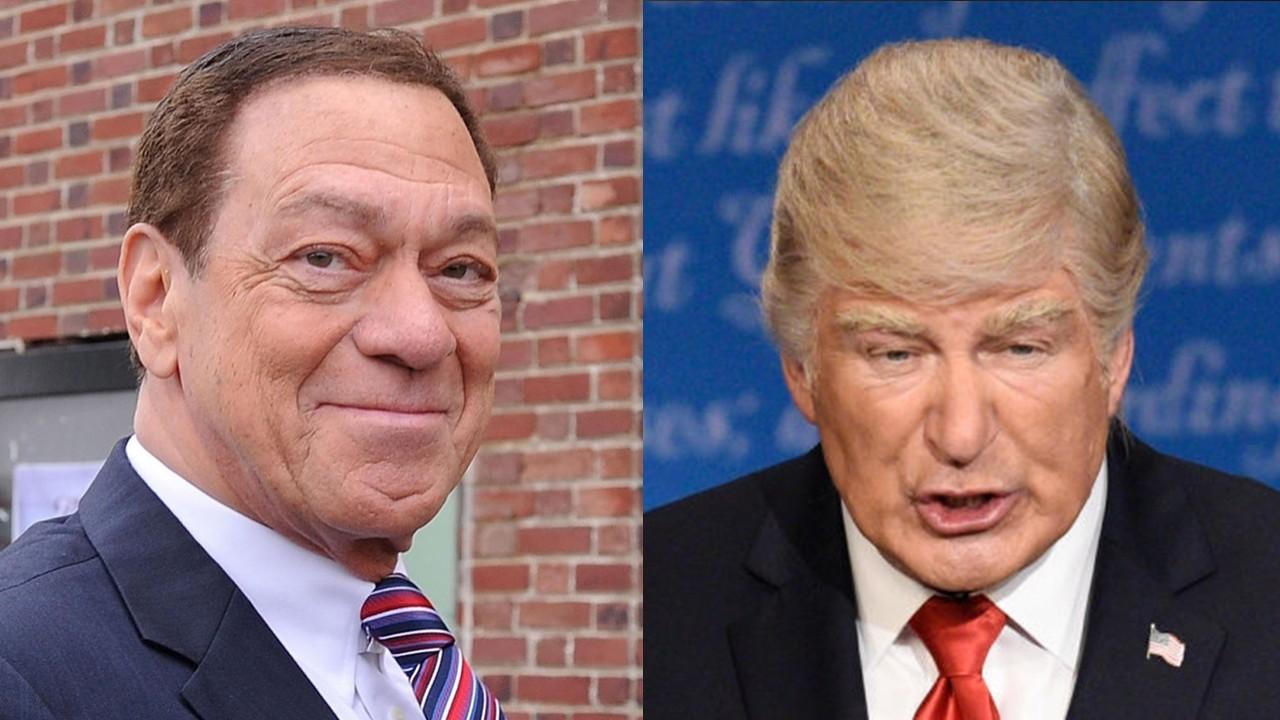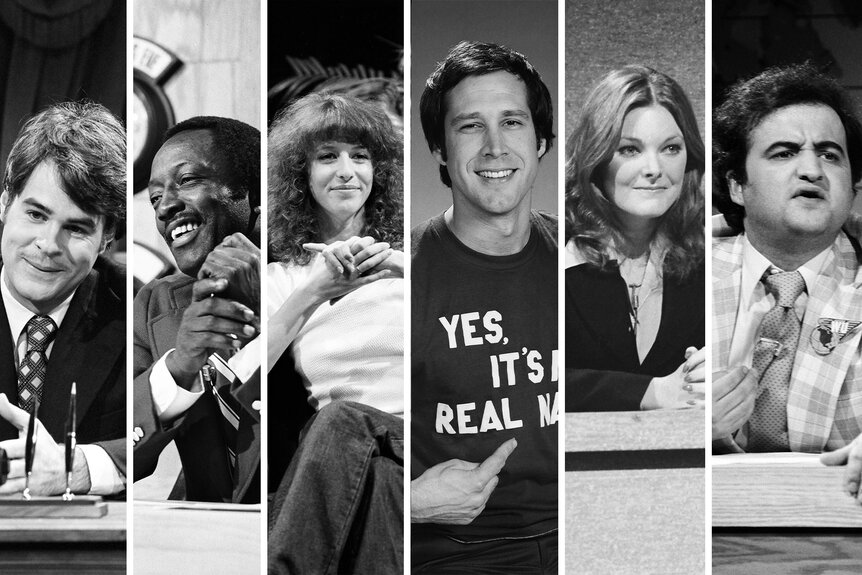SNL's Trump Roast Turns: Did "Saturday Night Live" Always Support Trump?
Has "Saturday Night Live" truly turned a new leaf, embracing the very figure it once relentlessly lampooned?
The recent "Saturday Night Live" episode, following Donald Trump's political resurgence, presented a satirical spectacle that left viewers questioning the show's allegiances. The cold open, a staple of the show, took an unexpected turn, with the cast seemingly pivoting from criticism to feigned adoration of the former president. This apparent about-face sparked debate, forcing a re-evaluation of the long-standing relationship between the show and the political landscape it reflects.
The episode, a blend of political satire and character-driven comedy, found itself in a peculiar position. The cast, including Bowen Yang, Ego Nwodim, Kenan Thompson, and Heidi Gardner, delivered their lines with a distinct sense of irony, a tone that served to amplify the underlying complexities of their performance. The very premise of the cold open became the heart of the performance, as the actors were seemingly conceding to Trumps legal team. As for the episode itself, it was reported to be the first since Donald Trumps victory that mocked the billionaire, Elon Musk, and introduced a muscular, "jacked" Trump to the audience.
| Aspect | Details | Additional Information |
|---|---|---|
| Show Title | Saturday Night Live (SNL) | Known for political satire and sketch comedy. |
| Original Run | October 11, 1975 present | Airing on NBC. |
| Network | NBC | The show's broadcasting home. |
| Creator | Lorne Michaels | The show's long-time producer. |
| Notable Cast Members |
| A rotating cast that has changed over the years. |
| Recurring Themes |
| Reflects current events and trends. |
| Controversies |
| The show has a history of provoking reactions. |
| Trump Mentions |
| Trump has been a frequent subject of SNL's skits. |
| Cold Opens |
| Cold opens are usually the longest segment in the show. |
| Weekend Update |
| One of the most popular segments. |
| Musical Guests |
| Musical performances are a staple of the show. |
| Reception |
| The shows critical response varies. |
| Awards |
| SNL is one of the most-awarded shows in television history. |
| Associated People |
| People who frequently appeared on or were referenced in the show. |
| Current Status | Ongoing | Still airing new episodes. |
The historical context is crucial to understand the recent episodes satirical turn. "Saturday Night Live" has, for many years, established itself as a cultural fixture, offering a comedic mirror to the political and social zeitgeist. In the past, the show has become notorious for its portrayal of political figures. Specifically, its treatment of Donald Trump, especially during his presidency, became a prominent feature of the show. The show's approach, however, has drawn criticism from those who perceive a liberal bias and question the fairness of its treatment of conservative figures and viewpoints.
The reactions to the Trump-era sketches were varied. Some viewers appreciated the show's ability to satirize the president and his administration, while others felt it was repetitive and overly critical. Trump himself frequently took to social media to express his displeasure with the show, often labeling it "totally biased" and "not funny." His commentary reflected the larger debate about the role of political satire and its potential impact on public opinion.
Beyond individual performances, "Saturday Night Live" has a long and complex relationship with the political sphere. The shows creators and writers are often tasked with the delicate balancing act of providing entertainment, critique, and commentary, all within the confines of a live, weekly format. This creative process is subject to external pressures, public expectations, and the ever-shifting landscape of contemporary politics. The very format of the show, with its cold opens and recurring characters, lends itself to both consistency and experimentation.
The recent episode also provided another layer to the situation by satirizing another public figure. The appearance of Elon Musk, played by Dana Carvey, gave the audience the opportunity to consider multiple facets of power and influence. Carveys impersonation of Musk also provided a source of additional humor, while simultaneously adding another layer of complexity to the narrative. This choice to bring in a new element to the show highlighted the show's desire to comment on the times in which it exists, while still trying to provide some laughter.
The shows approach also offers insights into the strategies of political commentary. The satirical lens can transform complex issues into digestible content, yet at the same time, it can also oversimplify the message. This is where the skill of the shows writers and performers comes into play: to find a balance between humor and substantive commentary. The ability of Saturday Night Live to stay relevant through each season depends on its ability to adapt and respond to the needs of its audience.
The performance of Kenan Thompson and Marcello Hernandez, as well as other members of the cast, also added another dimension to the night. The decision to have cast members seemingly offer unconditional support to Trump reflected a strategy that mirrored some contemporary political tactics. It pointed to the complex relationships between media, politics, and audience expectations. The show essentially adopted a tactic of exaggerated support, playing on the idea of political opportunism and the shifting alliances that can occur in the political sphere.
The shows decision to satirize this situation speaks to the changing role of political satire in the modern media environment. The show is not just a source of entertainment; it is also a forum for cultural analysis and, at times, even a reflection of the changing political dynamic. The very fact that it is still a topic of debate highlights the enduring power of the show to generate discussions and reactions.
The "Saturday Night Live" episode, however, offered an insightful snapshot of the shows enduring role in cultural commentary. The act of appearing to support Donald Trump with a wink and a nod could be seen as a commentary on the current political climate. It also reflected the show's continued relevance in an era of constant change and increasing complexities. The ability to address these issues while creating a sense of humor is key to the shows ongoing success.
The show, in its cold open, decided to find the humor in the situation. The show, in its cold open, decided to find the humor in the situation. The "Saturday Night Live" cast sarcastically tells Donald Trump they never wavered in their support of him and begs not to be put on his enemies list, and, on the other hand, the show has also made the target of complaints by conservatives who claim that "SNL" is a liberal nest of snakes and ridicules traditional republican values.
The interplay between the cast members and the portrayal of these figures, including the introduction of a "jacked Trump," serves as a comment on the medias relationship with power, influence, and the ever-changing political climate. The satirical approach of the show also made sure that it offered a form of cultural critique. Whether the intent was to satirize Trump or to provide a commentary on the state of politics, the episode created a spectacle that made people stop and think.
The show has also featured musical performances. Musical performances are a staple of the show, and they are a good way to keep the audiences attention. Some notable cast members of the show include Peter Aykroyd, who passed away in 2020. The show also relies on a repertory of players, featured players, and middle group, which all play their part in the show. The show also has weekend updates that include anchors and hosts, as well as writers who write the content.
The evolution of "Saturday Night Live" reflects changes in the media and culture. In the beginning, the show was seen as revolutionary due to its improvisational approach, social critique, and willingness to push boundaries. However, as the years passed, "Saturday Night Live" was able to adapt to the changing cultural climate. The show's longevity also depends on its ability to remain relevant in a rapidly changing media landscape.
The episode demonstrated the shows enduring ability to provoke discussion, even as it navigates the complexities of political commentary. It's a testament to the show's capacity to respond to the times, its enduring role as a cultural touchstone, and the show's constant efforts to find humor in an environment that is characterized by change.
The audiences response to the show has varied. The show has garnered both praise and criticism. Some praise the show for its satirical genius and commentary, while others criticize it for its alleged political biases. Regardless of these reactions, the episode is a testament to the shows enduring ability to provoke discussions and stay relevant. Through the use of humor, the show has established its position as an important voice in todays media.
This constant state of change and the ability to stay at the center of cultural conversations has allowed "Saturday Night Live" to continue its decades-long run, proving that, despite the ever-evolving nature of political and cultural landscapes, it can still thrive.
The recent episode provided an interesting reflection on the medias interaction with power. The exaggerated support, satirical impersonations, and the shows approach all add to the narrative of the changing media and political landscape.


